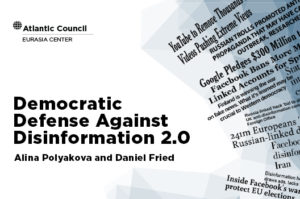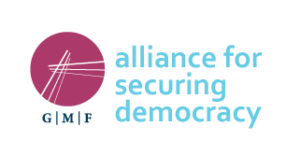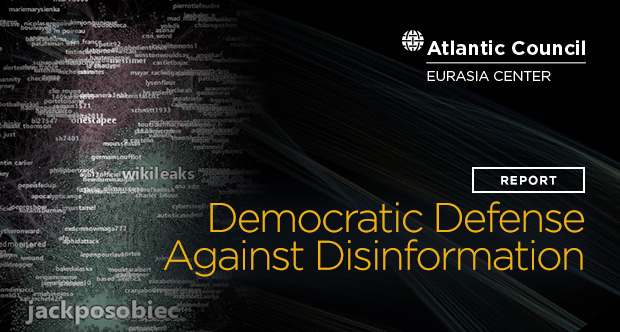 State-sponsored disinformation campaigns are upping their game, and they won’t be limited to election cycles. Democracies are still playing catch-up — the United States barely so, say Daniel Fried.
State-sponsored disinformation campaigns are upping their game, and they won’t be limited to election cycles. Democracies are still playing catch-up — the United States barely so, say Daniel Fried.
In a new report for the Atlantic Council, we looked into how European and U.S. authorities are addressing the challenge of disinformation — and found that the Europeans come out on top. they write for The Washington Post:
- First, the good news. Democracies on both sides of the Atlantic have moved beyond “admiring the problem” — or reacting with a sort of existential despair in the face of a new threat — and have entered a new “trial and error” phase, testing new policy responses, technical fixes, and educational tools for strengthening resistance and building resilience against disinformation….
- Now for the bad news. The United States lags behind the E.U. in terms of strategic framing of the challenge and policy actions to deal with it…. As state and nonstate actors deploy new technologies and adapt to responses, exposure will become even more difficult. “Deepfakes” and other forms of “synthetic media” will only grow in sophistication. A primitive, distorted video of House Speaker Nancy Pelosi reached millions of people in hours. Higher-quality video and audio deception — available at low cost — that are harder to detect in real time will be a dangerous weapon in the emerging age of disinformation.
 The Kremlin and its proxies employ various tactics to undermine democracies around the world, including by enriching elites, bankrolling illiberal populists, building energy dependence, and empowering fringe elements like paramilitaries, Alliance for Securing Democracy Fellow on Malign Finance Joshua Rudolph told NPR.
The Kremlin and its proxies employ various tactics to undermine democracies around the world, including by enriching elites, bankrolling illiberal populists, building energy dependence, and empowering fringe elements like paramilitaries, Alliance for Securing Democracy Fellow on Malign Finance Joshua Rudolph told NPR.
Election interference is part of a broader ongoing effort by authoritarian regimes to undermine democracies, ASD Director Laura Rosenberger commented as a panelist at the 2019 GLOBSEC Bratislava Forum.
Alina Polyakova is director of the Project on Global Democracy and Emerging Technology and a fellow in the foreign policy program at the Brookings Institution. NED board member Daniel Fried, who served as a U.S. diplomat for 40 years, is a distinguished fellow at the Atlantic Council.








